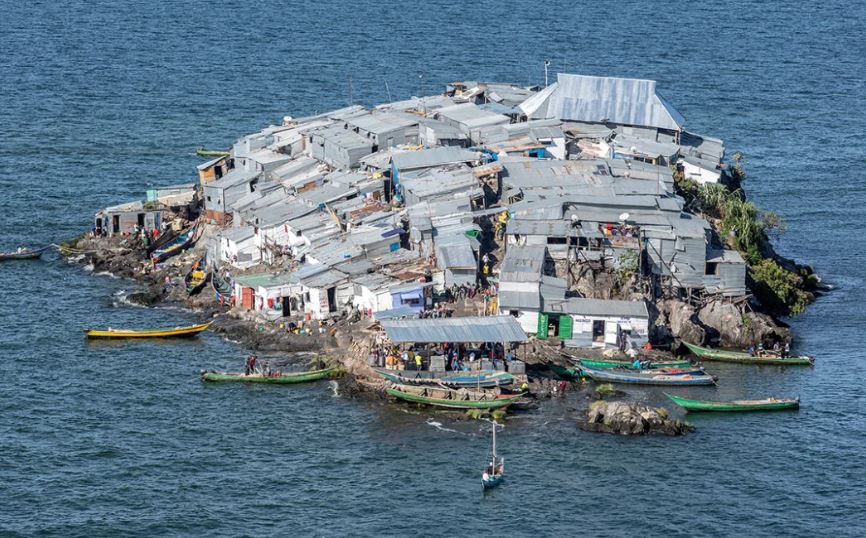Migingo residents demand govt release of 2009 boundary survey report

The harassment of Kenyan fishermen and residents by Ugandan forces has been a source of growing frustration and tension between the two nations.
The residents of Migingo Island have called on the governments of Kenya and Uganda to publicly release the report of the 2009 joint survey team, which was tasked with confirming the boundary between the two countries in Lake Victoria.
The petition, led by Dr Dan Alila, a former special counsel at the Africa Human Rights Bureau, seeks to address what has been described as a long-standing issue of Kenyan citizens being subjected to harsh treatment and harassment by Ugandan security forces.
Alila, acting in the public interest on behalf of the Kenyans living and working on Migingo Island and in the territorial waters of Kenya, said that the petition is a call for the government to take action to end the "ongoing act of slavery" that has continued since 2004.
The harassment of Kenyan fishermen and residents by Ugandan forces has been a source of growing frustration and tension between the two nations.
In 2009, Kenya and Uganda established a joint technical survey team to demarcate the Lake Victoria border, using the Kenya Colony and Protectorate (Boundaries) Order in Council of 1926 and the Constitution of Uganda as guiding frameworks.
However, the exercise came to an abrupt halt in July 2009 when the teams disagreed over technical aspects of the survey.
The Kenyan team later concluded that Migingo Island is located 510 meters inside Kenyan territory.
Despite the findings, the report has not been made public. According to Alila, the failure to release the survey results has led to ongoing human rights violations.
He states that the illegal arrests of Kenyan fishermen, along with the confiscation of their boats, fishing gear, and fish, continue to deprive the Migingo community of their livelihoods.
These actions, he argues, violate Article 30(1) of the 2010 Kenyan Constitution, which protects citizens from inhuman and degrading treatment.
"For two decades now, Kenyans living on Migingo Island and in the Lake Basin counties have been suffering extreme and continuous harassment at the hands of Ugandan security forces," said Dr. Alila. "A considerable number of survivors are living in deplorable conditions, some in poor health, others out of business, and the list of victims is long."
The petition is also a plea for humanitarian support for the victims of these abuses, many of whom are in dire need of medical attention and financial assistance.
The dispute over the ownership of Migingo Island has remained a point of contention between Kenya and Uganda for nearly 20 years. Located in Nyatike Sub County of Migori, the small island, which spans less than 2,000 square kilometres, is crucial for both countries. It is not only a significant fishing ground, but its strategic location adds to its importance.
The island has been the subject of much debate since Uganda first raised its claim over it in 2004.
However, according to Alila, the island is firmly within Kenya's territorial waters, as outlined by the geographical coordinates set by the Kenya Colony and Protectorate (Boundaries) Order in Council of 1926.
The Order in Council clearly places Migingo Island on the Kenyan side of the international boundary with Uganda.
Despite Uganda's continued claim over the island, Kenya has consistently exercised sovereignty over it, with no opposition from other parties, including the Organisation of African Unity (OAU) and its successor, the African Union (AU), which have both upheld the boundaries set during the colonial era.
Alila also pointed out the economic toll that the ongoing dispute has taken on Kenyan fishermen.
They continue to bear the brunt of confiscations, with boats and equipment seized by Ugandan authorities and fishermen sometimes imprisoned in Uganda for doing business in what should be Kenyan territorial waters.
The 2009 joint survey report, which was submitted to the government in 2014, is yet to be made public, despite the clear constitutional obligation to release such important documents.
Alila lamented that ten years after its submission, the government has failed to disclose the findings, which he believes are crucial in resolving the territorial dispute.
While diplomatic discussions have taken place over the years to address the conflict, the situation has not improved.
Alila argues that the issue remains a serious threat to regional peace and security, especially in the East African region.
The petition is seen as a way to give a voice to the marginalized and neglected people of Migingo Island, who have been subjected to years of suffering due to the dispute.
Alila also called on local leaders and officials from the Lake Region Economic Bloc, as well as the national government, to visit the island to better understand the socio-economic issues affecting the community.
In 2018, Siaya Governor James Orengo, who was a Senator at the time, suggested that the Migingo Island dispute should be taken to the International Court of Justice.
Orengo noted that the ongoing harassment of Kenyan fishermen by Ugandan soldiers had reached a critical point and needed urgent intervention.
Top Stories Today














































